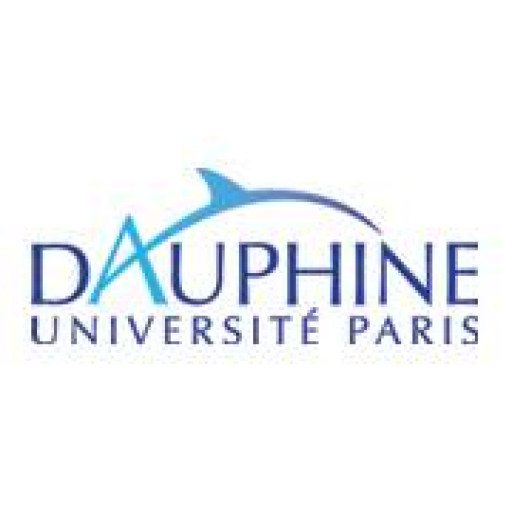Photos of university / #lundsuniversitet
Development Studies at Lund University offers a comprehensive and interdisciplinary program designed to equip students with the knowledge and skills necessary to understand and address complex development challenges worldwide. This Master's program focuses on the social, economic, political, and environmental aspects of development, fostering critical thinking and analytical capabilities to evaluate development policies and practices. Students gain insight into global issues such as poverty, inequality, sustainable development, and governance, preparing them for careers in international organizations, NGOs, government agencies, and research institutions. The curriculum combines theoretical frameworks with practical applications, encouraging students to engage with real-world problems through case studies, fieldwork, and project-based learning. Emphasizing both local and global perspectives, the program promotes awareness of diverse development contexts and promotes sustainable solutions.
Throughout the program, students attend lectures, seminars, and workshops led by experienced faculty and practitioners from around the world. They also have opportunities for internships and collaborative projects, which enhance their practical understanding and professional networks. The program is structured to develop key skills such as policy analysis, research methodology, project management, and intercultural communication. With a strong international orientation, students are encouraged to participate in study exchanges and engaging with diverse perspectives to prepare for global careers. Upon completion, graduates will be well-equipped to contribute effectively to development initiatives and policy formulation aimed at fostering equitable and sustainable growth. The program's interdisciplinary approach and emphasis on critical thinking make it an ideal choice for individuals passionate about making a positive impact in developing regions and global development efforts worldwide.
The Master’s programme in Development Studies at Lund University offers students a comprehensive and interdisciplinary understanding of global development issues. The programme is designed to equip students with the analytical tools and practical skills necessary to address complex challenges faced by developing and emerging countries. Through a combination of theoretical frameworks, policy analysis, and field studies, students explore key areas such as economic development, social justice, inequality, environmental sustainability, governance, and human rights. The curriculum emphasizes critical thinking and encourages students to evaluate development strategies from multiple perspectives, including political, economic, social, and environmental angles.
Students will engage with case studies from different regions around the world, providing a contextual foundation for understanding diverse development trajectories and policy options. The programme also emphasizes the importance of local participation and inclusive development approaches, highlighting the roles of NGOs, international organizations, governments, and local communities. As part of the curriculum, students have the opportunity to participate in seminars, workshops, and field visits, which enhance practical understanding and foster networks with practitioners and policymakers.
The programme’s structure includes core courses in development theories, quantitative and qualitative research methods, and project management. Elective courses allow students to specialize in areas such as sustainable development, international aid, gender and development, or environmental policy. The master’s thesis provides an opportunity for students to conduct independent research on a topic of their choice, often involving empirical data collection and analysis.
Graduates of the Development Studies programme are equipped to pursue careers in international development organizations, governmental agencies, policy advisory bodies, research institutions, and NGOs. They acquire a critical understanding of development processes and are prepared to contribute to sustainable and equitable development policies globally. The programme fosters an international and multicultural learning environment, encouraging students to develop their intercultural competencies and global outlook, preparing them for careers in international development sectors across the world.
Admission to the Master's Programme in Development Studies at Lund University requires applicants to hold a Bachelor's degree or an equivalent qualification in a related field such as social sciences, humanities, or economics. The program emphasizes interdisciplinary understanding, so students with diverse academic backgrounds are encouraged to apply. Applicants must demonstrate proficiency in English, typically through standardized tests such as the IELTS (minimum score of 6.5 overall) or TOEFL (minimum score of 90 internet-based). In addition to academic credentials, applicants are often required to submit a motivation letter outlining their interest in development issues and career goals. Some applicants may also need to provide letters of recommendation, which should ideally highlight the applicant's academic abilities and relevant experience. Work experience in development-related fields is considered an advantage but is not mandatory for admission. The selection process is competitive and involves an evaluation of academic transcripts, motivation letters, and, where applicable, recommendations. Prior knowledge of development theories, sustainability issues, and international relations can strengthen an application. Due to the interdisciplinary nature of the programme, applicants with skills in qualitative and quantitative research methods will find it particularly suitable. As part of the admission process, applicants must also meet the general Entry requirements for master's level studies at Swedish universities, which include the above academic credentials and language proficiency. Meeting these criteria does not guarantee admission, as the programme has a limited number of places available. Successful applicants are expected to have a strong interest in global development challenges and a commitment to contributing towards sustainable and equitable development. Once admitted, students are required to complete coursework, participate actively in seminars and group work, and undertake a thesis project that addresses contemporary development issues.
Want to improve your English level for admission?
Prepare for the program requirements with English Online by the British Council.
- ✔️ Flexible study schedule
- ✔️ Experienced teachers
- ✔️ Certificate upon completion
📘 Recommended for students with an IELTS level of 6.0 or below.
Financing for the Master's Programme in Development Studies at Lund University is primarily provided through various sources of funding that support both Swedish and international students. For Swedish citizens and those with the right to residence in Sweden, tuition fees are generally exempt, and students can apply for loans and grants through the Swedish National Agency for Higher Education, known as CSN. CSN offers financial support that covers tuition fees as well as living costs, facilitating access to education without significant financial burdens. International students, however, are required to pay tuition fees which vary depending on the specific programme and are set by Lund University. These students can explore several funding options including scholarships, grants, and private loans.
Lund University offers a range of scholarships aimed at international students, which can significantly reduce the financial burden. The Lund University Global Scholarship Programme, for example, provides full or partial tuition fee waivers based on academic merit. Additionally, there are country-specific scholarships and other externally funded grants that students can apply for during the admission process. Students are encouraged to seek external funding sources such as scholarships from their home countries, international organizations, foundations, or private entities, in order to cover tuition fees and living expenses.
Apart from scholarships and grants, students can also consider part-time employment opportunities both during the semester and during the summer period, subject to visa and work regulations in Sweden. The university's location in Lund, a city with a vibrant student community and availability of part-time jobs, offers additional financial support avenues. It is also recommended that students prepare a detailed financial plan before starting their studies, considering tuition fees, accommodation, insurance, daily living costs, and study-related expenses.
In conclusion, financing studies in the Development Studies program at Lund University involves a combination of personal savings, scholarships, government grants, and potential part-time work. International students are advised to explore all available funding options early in their application process to ensure they can meet the financial requirements of their studies and make the most of their academic experience.
Development Studies at Lund University offers a comprehensive interdisciplinary program designed to equip students with the knowledge and skills necessary to analyze and address global development challenges. The program emphasizes understanding the social, economic, political, and environmental factors that influence development processes worldwide. Students engage with a broad range of topics, including poverty alleviation, sustainable development, human rights, governance, and international cooperation. The curriculum combines theoretical foundations with practical applications, preparing graduates for careers in international organizations, NGOs, government agencies, and research institutions. Courses are delivered through lectures, seminars, case studies, and independent research projects, fostering critical thinking and analytical skills. The program also encourages students to develop intercultural competence and global awareness, essential for working effectively in diverse contexts. Students have opportunities for fieldwork and internships, providing real-world experience. Lund University's strong international network and partnerships facilitate exchanges and collaborations, enriching the educational experience. The program is suitable for individuals interested in making a positive impact on global development issues and seeking to work in settings that promote social justice and sustainable progress. Upon completion, graduates are well-prepared to contribute to development policies and initiatives or pursue further academic research in the field.











